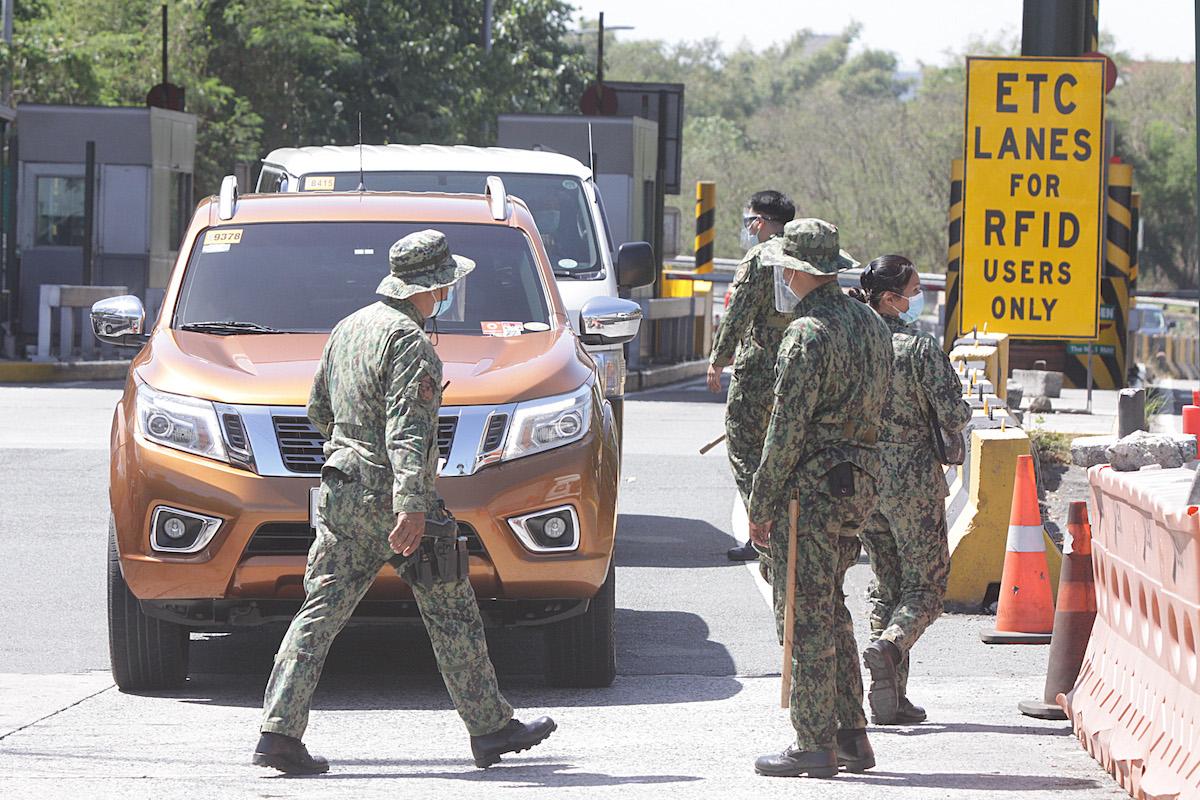ECQ effective as COVID-19 reproduction number in NCR goes down to 1.23 -OCTA

The OCTA Research Group on Saturday said the reimposed enhanced community quarantine in Metro Manila and nearby provinces is “working” as the reproduction number in the "bubble" went down to 1.23 in the past week from 1.88, before the implementation of strictest lockdown in the region.
In its April 10 report, OCTA said the growth rate for the past week was at -9% while the positivity rate was at 25% in the same period.
The reproduction number refers to the number of people that one COVID-19 case can infect.
While the research group saw a 19% decrease in the average tests done compared to the number of tests conducted a week before the ECQ, it said that the strictest quarantine classification has been effective in reducing the growth rate in Metro Manila.
“Nevertheless, the ECQ has been effective in reducing the growth rate and reproduction number in the NCR. There is hope that the NCR will be on a downward trend by next week,” the report read.
OCTA said the findings may be subject to corrections.
OCTA reiterated its call to extend the reimposed ECQ.
If the government cannot afford to extend ECQ due to “socio-economic” reasons, a two-week modified ECQ should be imposed in the NCR bubble to further slow down the transmission of the coronavirus.
“Extend the ECQ for another week to continue to slow down the surge, decongest our hospitals and relieve the pressure on our healthcare workers. OCTA believes that opening up the NCR+ prematurely would be a significant risk as it could accelerate the surge again,” the report read.
The researchers also observed negative one-week growth rates in Pasay, Marikina, Mandaluyong, Taguig, Manila, Makati, Las Piñas, Valenzuela, and Quezon City.
The growth rates among the local government units (LGUS) are “encouraging” but it is too early to tell whether there is already a downward trend in the COVID-19 cases in the said areas.
Moreover, OCTA said the reported high number of fresh COVID-19 cases in the NCR bubble and the reproduction number is still above 1 and means the hospitals in the NCR bubble will remain at high utilization.
“Hospitals in the NCR Plus will remain at high utilization in the coming weeks even with a downward trend expected soon, and many Covid-19 patients may not be able to obtain access to medical care,” the report read.
OCTA maintained its recommendation to ramp up the testing, tracing, and isolation efforts to bring down the quarantine classification into a less stringent one.
It likewise urged the government to work with LGUs and the private sector to fast-track the vaccination of residents inside the NCR bubble.
More vaccination sites, personnel, and volunteers may be needed to speed up the process, OCTA said.
Researchers said this will reduce the possibility of super spreader events due to crowding in vaccination centers.
More doctors and nurses should be recruited to augment the existing LGU vaccination teams in the NCR bubble.
Malacañang earlier said it was “unlikely” that the ECQ, the strictest lockdown classification, would be extended past April 11.
The government’s inter-agency COVID-19 task force will meet this afternoon to discuss the quarantine restrictions over NCR Plus.
NCR mayors
On the ground, Metro Manila mayors said their cities were already witnessing the benefits from the extended ECQ, according to a 24 Oras Weekend report by Mav Gonzales.
In San Juan City, active cases have gone done to between 800 and 900 from pre-ECQ's more than 1,000 cases, even as the local government plans to add 250 more hospital beds for COVID-19 patients.
The city has, likewise, begun offering a P3,000 cash incentive to patients who would volunteer to check themselves in at quarantine facilities.
In Navotas, patients have been allowed to home quarantine since the city's isolation facilities are already filled. Those opting for home quarantine, however, are required to wear quarantine bands or Q bands so the local government can ensure they stay inside their homes.
Mandaluying City, meanwhile, has resorted to "reverse isolation" in which those without the virus are the ones being isolated, away from their sick relative, who are made to stay in their homes. -MDM, GMA News



